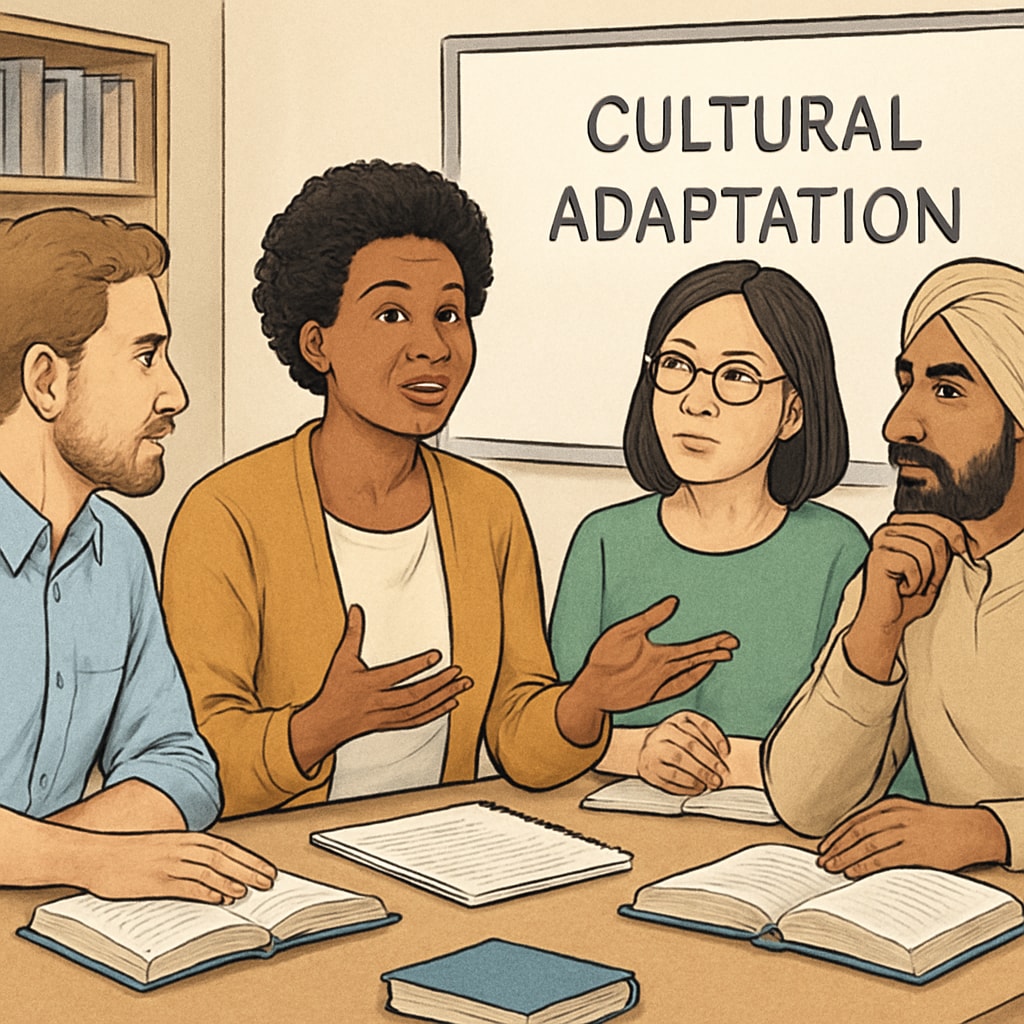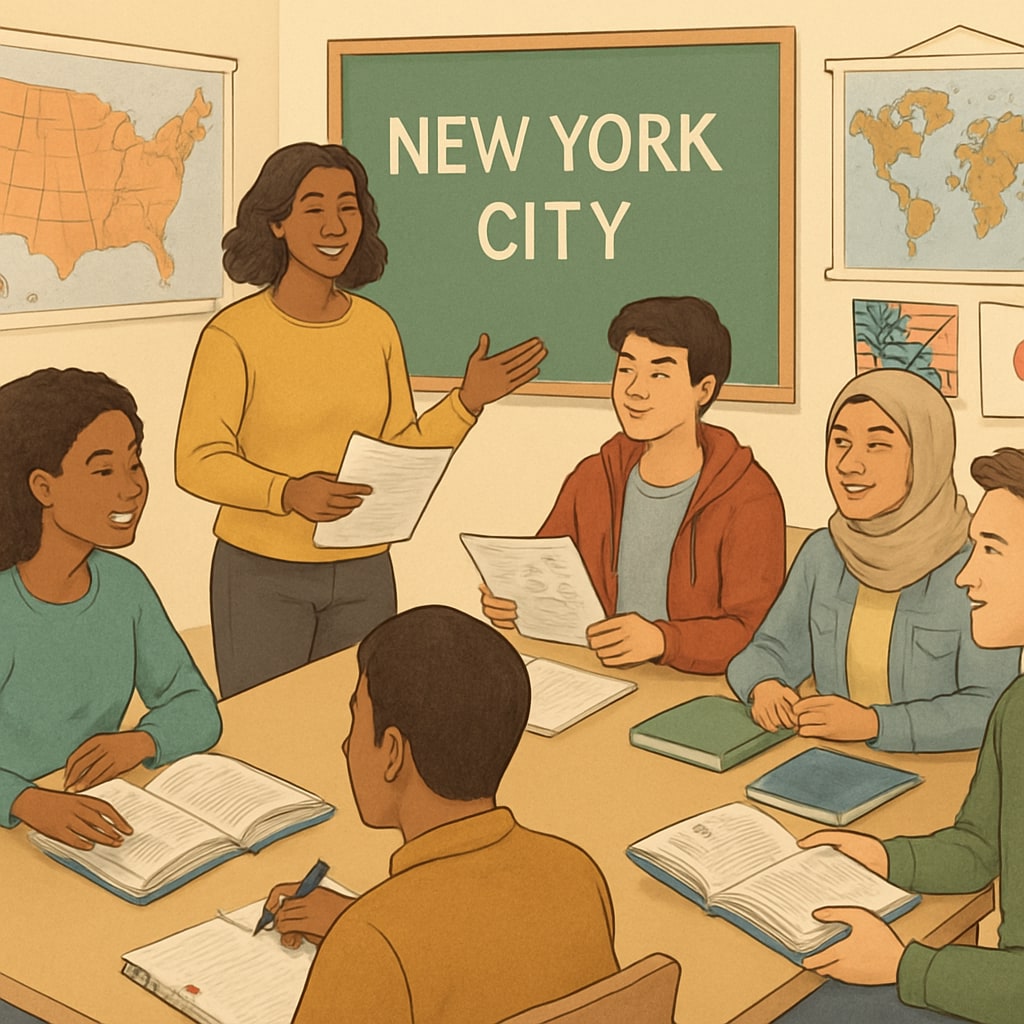In the rapidly globalizing world, adult education, cultural adaptation, and foundational knowledge are more relevant than ever for international students. For adult learners arriving in cities like New York, navigating cultural differences while pursuing academic or professional goals can be a daunting task. To address these challenges, various resources are available to support their cultural integration and education. This article highlights strategies and tools for international students, focusing on foundational education opportunities in New York City.
Understanding the Cultural Gap: Why Foundational Education Matters
International students often encounter a cultural gap when transitioning to life in Western countries. This gap can manifest in social norms, communication styles, and even classroom etiquette. Foundational education helps bridge this divide by offering students the tools they need to adapt to their new environment. For example, understanding Western academic standards—such as critical thinking and active participation—can significantly improve an international student’s academic performance.
In addition to academic skills, cultural education addresses everyday challenges. Students learn how to navigate public transportation, access healthcare, and engage with community activities. These foundational skills are essential for fostering independence and confidence in a new country.

Key Resources for Adult Education in New York City
New York City offers a wide range of resources tailored to international adult learners. From language schools to cultural workshops, the city provides numerous opportunities to ease the transition process. Below are some key options:
- Language Programs: Institutions like the NYC Department of Education and community colleges offer English as a Second Language (ESL) courses to help non-native speakers improve their communication skills.
- Cultural Orientation Workshops: Organizations such as the International Rescue Committee conduct workshops on cultural norms, healthcare access, and job readiness.
- Libraries and Community Centers: Public libraries in NYC frequently host free cultural adaptation seminars and provide access to learning materials.
- Online Learning Platforms: Websites like Coursera and Khan Academy offer courses tailored to adult learners, focusing on topics like Western culture and soft skills.

Overcoming Challenges in Cultural Adaptation
Despite the availability of resources, international students often face barriers such as time constraints, financial limitations, and feelings of isolation. However, these challenges can be mitigated with proper planning and support. For instance:
- Time Management: Flexible learning schedules, such as evening classes or online courses, can accommodate busy lifestyles.
- Financial Assistance: Many programs offer scholarships or sliding scale fees to make education more accessible.
- Building a Community: Joining student organizations or attending cultural exchange events can help international learners build connections and combat loneliness.
By addressing these challenges early, students can focus on their personal and professional growth without the added stress of cultural misalignment.
The Role of Educators in Supporting Cultural Adaptation
Educators play a crucial role in fostering cultural adaptation among adult international students. By creating an inclusive and supportive classroom environment, they can help learners feel more comfortable engaging with new concepts. Practical teaching methods include:
- Using real-world examples to illustrate cultural norms.
- Encouraging peer learning to promote cross-cultural interaction.
- Providing personalized feedback to address individual challenges.
In addition, educators can collaborate with cultural organizations to design curricula that address specific cultural gaps faced by international students.
As a result, both educators and students benefit from a more dynamic and enriched learning experience.
Conclusion: A Pathway to Success
Adult education, cultural adaptation, and foundational knowledge are indispensable for international students striving to thrive in Western society. New York City, with its diverse population and wealth of resources, serves as an ideal environment for such learning. By leveraging available programs and support networks, international students can build the skills and confidence needed to succeed both academically and socially. With the right tools, cultural adaptation becomes not just a challenge but an opportunity for growth and enrichment.
For more information on cultural adaptation programs, explore resources like the education section on Britannica or visit your local community center.
Readability guidance: The article breaks complex topics into manageable sections and includes lists to summarize key points. It uses clear language and transitions to ensure accessibility for a broad audience.


